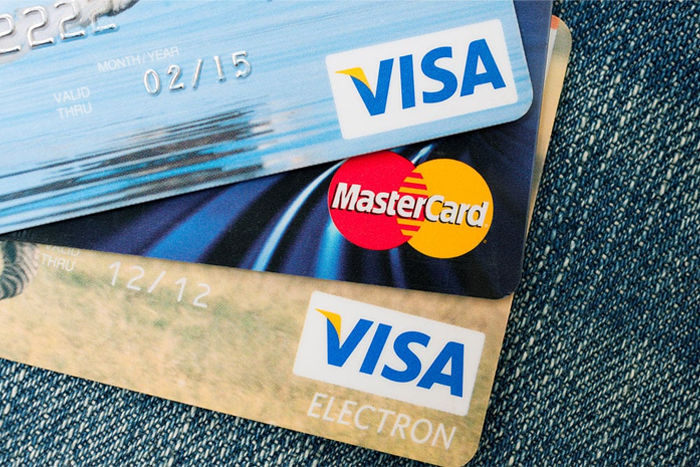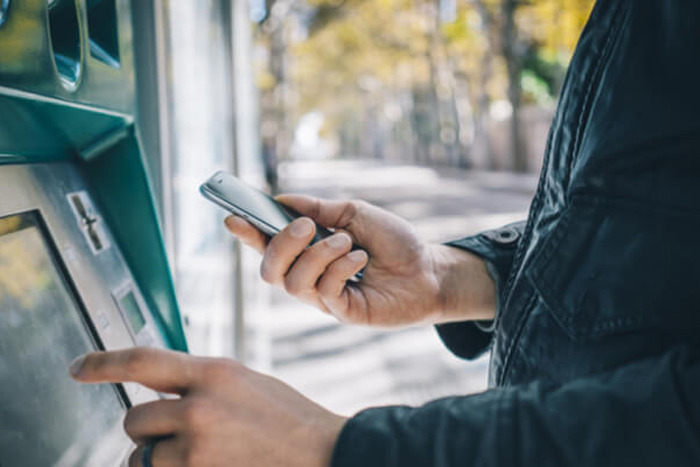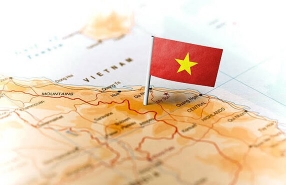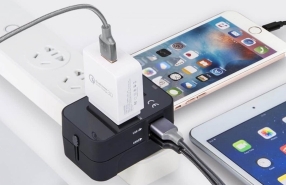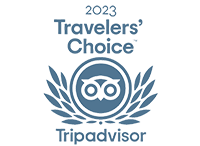
When preparing for a trip to Thailand, the question “Which travel bank card to use in Thailand?” is crucial. Bank cards accepted in Thailand vary, and choosing the right one can greatly facilitate your stay. This section explores the available options, examining the acceptance of different cards, associated fees, and potential benefits. Whether you're planning purchases in major cities or withdrawals in more remote areas, understanding the specifics of travel bank cards in Thailand will help you manage your money efficiently and fully enjoy your trip.
I. International bank cards - Accepted payment methods in Thailand
1. Acceptance of bank cards in Thailand
In Thailand, the use of international bank cards is widespread, especially in major cities and tourist areas. Bangkok, Phuket, Chiang Mai, and other popular destinations are well-equipped to accept card payments. However, in rural areas and small islands, cash remains the predominant method of payment. It's therefore advisable to always have some cash on hand.
2. Types of bank cards accepted in Thailand
Visa and Mastercard are the most widely accepted cards in the country. They can be used in most hotels, restaurants, shopping centers, and travel agencies. American Express is less common but accepted in high-end establishments. Union Pay cards, popular among Chinese tourists, are gaining acceptance, while JCB remains less common.
3. Where to use bank cards?
You can use your travel bank cards in Thailand in many places. Hotels, resorts, restaurants, and bars in tourist areas generally accept card payments. Large shopping centers, brand stores, and travel agencies are also well-equipped. However, for small businesses, local markets, or street food, cash remains king.
II. Which bank cards to choose for traveling in Thailand?
The choice of travel bank cards for your trip to Thailand will depend on your needs and payment habits:
1. Debit cards
Debit cards offer travelers a convenient way to manage expenses by limiting spending to available funds in their account. They're excellent for cash withdrawals and everyday purchases while abroad. However, many traditional debit cards can incur substantial fees for foreign transactions and ATM withdrawals. To minimize costs, savvy travelers often opt for debit cards specifically designed for international use. The best debit cards for overseas travel typically offer features such as no foreign transaction fees, low or reimbursed ATM fees, and competitive exchange rates.
Some top options include the Charles Schwab High Yield Investor Checking Account, which reimburses all ATM fees worldwide, and the Capital One 360 Checking account, which charges no foreign transaction fees. Additionally, some online banks like N26 and Revolut offer multi-currency accounts and favorable exchange rates, making them excellent choices for frequent international travelers. When selecting a debit card for use abroad, it's crucial to compare fees, exchange rates, and global ATM access to ensure you're getting the most value from your card while traveling.
2. Credit cards
Credit cards are essential for international travel, offering purchase protection, travel insurance, and rewards. The best credit cards for overseas use typically feature no foreign transaction fees, travel credits, and enhanced point earnings on travel expenses. Popular options include the Chase Sapphire Reserve, Capital One Venture X, and Bank of America Travel Rewards card. These cards provide benefits like airport lounge access, travel credits, and comprehensive insurance coverage. While credit cards are ideal for reservations and larger purchases abroad, travelers should be mindful of overspending and avoid cash advances due to high fees and interest rates. Choosing the right card and using it wisely can significantly enhance the travel experience while providing financial security.
3. Prepaid cards
Prepaid cards are an excellent option for managing expenses while traveling in Thailand. These cards allow you to load a set amount before departure, aiding budget control and offering security as they're not linked to your main bank account. For Thailand, cards supporting Thai Baht, like Wise or Revolut, often provide competitive exchange rates and low ATM fees, crucial in Thailand's largely cash-based economy. They typically offer mobile apps for easy balance checks and top-ups. While widely accepted in tourist areas, it's wise to carry some cash for smaller vendors or rural locations. When choosing a prepaid card, consider exchange rates, ATM fees, and any additional travel perks to maximize value during your Thai adventure.
4. Selection criteria
To choose the best travel bank cards in Thailand, consider exchange and withdrawal fees, payment and withdrawal limits, included insurance and guarantees, as well as the quality of international customer support. A combination of different types of cards may be the ideal solution to cover all your needs during your stay in Thailand.
III. Bank cards without foreign fees: how to withdraw money without Fees in Thailand?
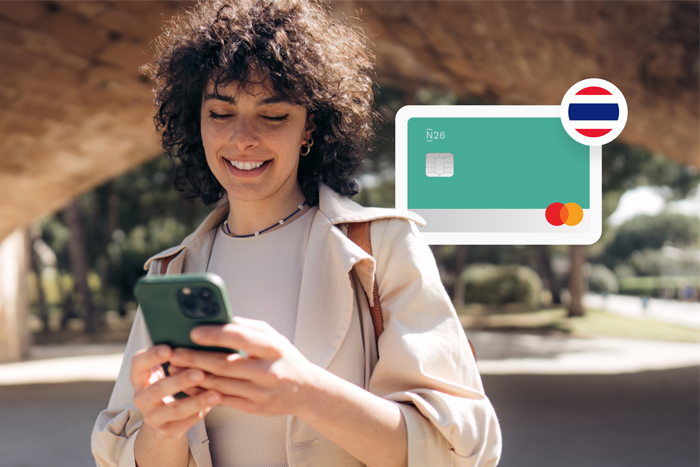
1. Specialized travel cards
Which travel bank card to use in Thailand? To avoid fees during your transactions in Thailand, several options are available. Cards specially designed for travel, such as N26, Revolut, or Wise (formerly TransferWise), offer advantageous conditions abroad. These cards generally offer competitive exchange rates and free or low-cost withdrawals at ATMs worldwide.
2. Options offered by traditional banks
Some traditional banks also offer cards suitable for frequent travelers. These are often premium cards which, for an annual fee, offer benefits such as free withdrawals abroad and comprehensive travel insurance. Inquire with your bank about special offers for travelers.
3. Strategies to minimize fees
To minimize fees, prioritize withdrawals from ATMs of banks partnered with your institution. Optimize your withdrawals by taking out larger amounts less frequently, while ensuring your safety. When making payments, always choose the local currency (Thai Baht) rather than your home currency to avoid additional conversion fees.
Before you leave, don't forget to activate the "foreign payments" option on your card if necessary. Also consider temporarily increasing your payment and withdrawal limits for more flexibility. Finally, inform your bank of your travel dates to avoid any blocking of your card due to suspicion of fraud.
IV. Bank card insurance for a trip to Thailand
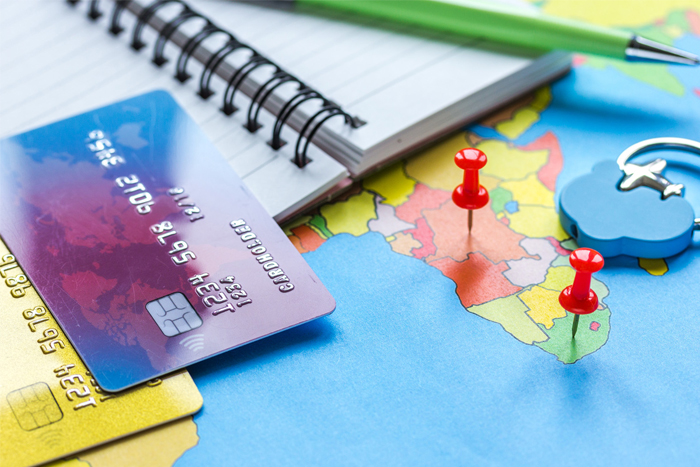
1. Insurance benefits
The insurance included with your credit card can offer valuable coverage for your trip to Thailand. Common types of insurance provided include travel insurance, which may cover trip cancellations or interruptions, medical assistance in case of illness or accident, and insurance against lost or stolen luggage.
The level of insurance coverage varies depending on the type of credit card, with premium cards generally offering more comprehensive protection. Coverage may include trip cancellation, delays, lost luggage, accidents, and medical emergencies. To activate the travel insurance, you often need to pay a significant portion of the trip using the card.
2. How to subscribe to insurance
To benefit from these insurances, you generally need to have paid for all or part of the trip with the card in question. In case of a claim, quickly contact your card's assistance service. You will need to provide supporting documents and comply with certain deadlines for your declaration. Be aware of the limits and exclusions of your insurance. The maximum duration of the covered stay is often limited (for example, to 90 days). Reimbursement limits and deductibles may vary. Certain situations, such as pre-existing conditions or acts of negligence, may be excluded from coverage.
In conclusion, the choice of travel bank card in Thailand can significantly impact your experience. Although many cards are accepted, especially Visa and Mastercard, it is crucial to consider the fees, coverage, and specific benefits of each option. Cards with no foreign fees or those offering travel insurance can be particularly advantageous. Don't forget to notify your bank of your trip and check your withdrawal and payment limits. Ultimately, the best bank card for Thailand is the one that matches your spending habits and specific needs. Good planning in this area will allow you to focus on the essentials: fully enjoying your stay in this beautiful country.
For a satisfying experience that exceeds your expectations, please CONTACT ATOUR ASIA,
Thailand Travel Agency now
Can I use euros or USD in Thailand?
In general, euros and USD are not commonly accepted in Thailand. The official currency is the Thai baht (THB). It is preferable to exchange your money at official exchange offices or use international bank cards to withdraw baht or pay directly. In very touristy areas, some businesses may accept dollars, but usually at unfavorable rates. For your stay in Thailand, prioritize using baht for all your transactions.
Can you withdraw money with an international payment card?
Yes, it is generally possible to withdraw money with an international bank cards. These cards, such as Visa or Mastercard, often allow cash withdrawals from ATMs in many countries.

